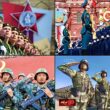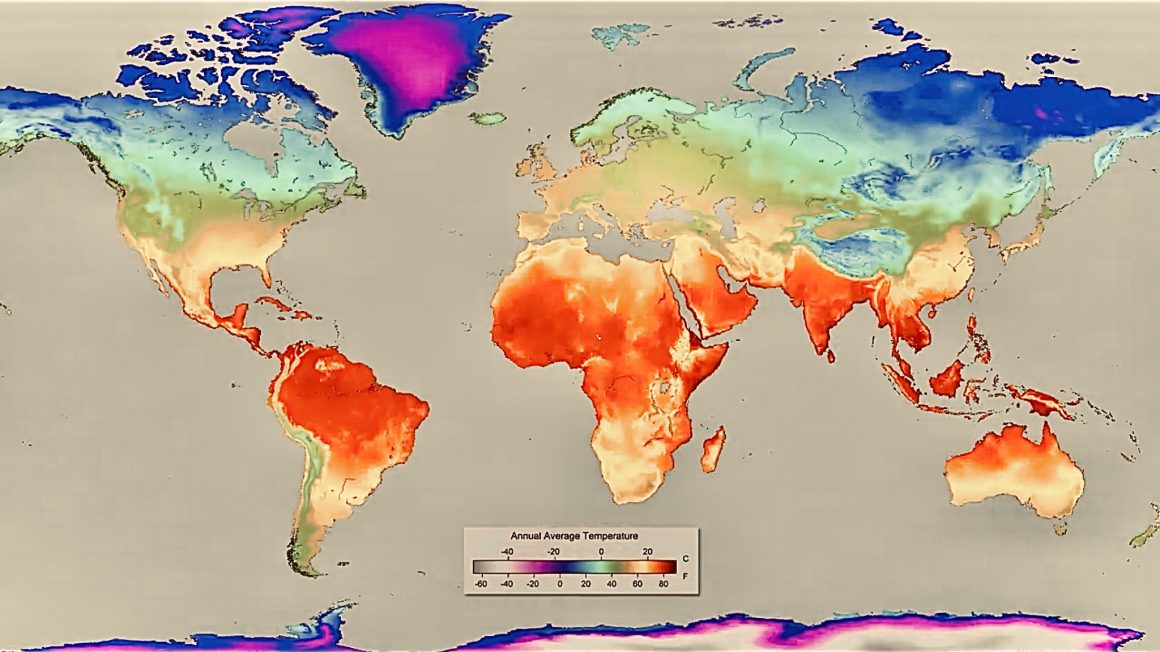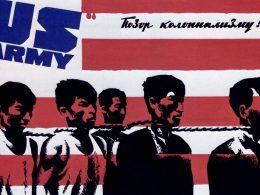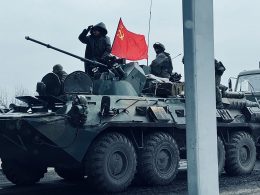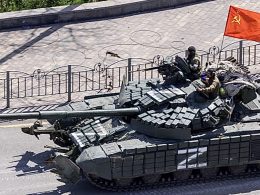When an earthquake of at least 8 points of magnitude hits my area on the coast of the Pacific Northwest, which has a more than 3 in 10 chance of happening within the next half-century, its impacts will be irrecoverable. At least irrecoverable by the metrics of our current economic and climatic paradigm, which leave us vulnerable to the ways this event will reshape the coast and the region’s markets. Society as it exists now wasn’t built to absorb these kinds of events, meaning our only recourse is to build a new system.
The climatic disruptions that will correlate with the quake’s impacts are going to both destroy many things, and produce opportunities for the creation of many new things. This reality about the nature of the chaos my home faces is a microcosm of what the entire globe faces: a violent transition into a new phase of history. One in which optimistic outcomes can ultimately be produced so long as we don’t neglect the welfare of our fellow human beings, or let the destruction get so big that humanity as a whole goes extinct.
The lack of electricity after the quake is estimated to last for several months, and given the progression of the recovery from Japan’s 2011 megaquake, running water will take months more to be restored. For the survivors, who predominantly live on the coasts, this period of adaptation will in effect last forever, beyond when the utilities are rebuilt. The culmination of the Cascadia subduction zone’s pressure buildup will accelerate the west coast’s existing sea level rise, adding around a meter to the relative water level by permanently sinking the land. In this way, the quake’s tsunami will engulf much of the coast irreversibly, namely the parts of it that are currently one to two meters above sea level.
Combined with the increased rain flooding that’s going to come from the American west coast’s more frequent El Niño-esque years, this raise in the water level will render the region’s most important components of civilization submerged. In my area, one to two meters of sea level rise will not only render towns like Arcata largely uninhabitable. It will make the highway’s lowest-lying transportation corridors impassable, depending on if the quake happens before adaptational development projects have been sufficiently carried out. When we’re waiting for the day that sea level rise process greatly accelerates over the course of a few hours, and the USA’s infrastructural policies are so infamously sub-par, it’s likely that the area will become a sacrifice zone. One among a vast number of locations that our social system chooses not to save during the climate crisis, because rescuing them wouldn’t benefit capital.
This fate was decided for these places long ago. For generations, their industrial capacities have been disappearing, leaving vacuums that get filled by black markets. In the parts of California that aren’t affluent liberal beach commerce centers (which the quake and the climate crisis will ultimately destroy anyway), meth and heroin are now some of the primary black commodities. With the legalization of marijuana, which has enabled big growers to establish ecologically destructive operations, these harder drugs are the biggest shadow commodities. This bleak reality is evident as soon as one leaves the shiny square blocks made for the elites. Unhoused people, urban decay, slums, and rural poverty are prevalent everywhere outside the zones where capital’s enclaves maintain the illusion of economic strength.
As Phil Neel writes about my area in his book Hinterland: America’s New Landscape of Class and Conflict, in an economy like this, profiting from our region’s growing crises has become as big a source of business as the black markets:
If timber and ore were the gods of the old west, fire and flood are the gods of the new one. With little to replace collapsed productive industries, the last few decades have seen the region become more and more dependent upon government funding…Much of this funding is poured into agencies such as respective state Departments of Transportation, which help to repair the massive stretches of roads that are destroyed by landslides every season— again, often through baroque systems of subcontracting. Natural disaster (rarely “natural” in any real sense) is one of the only industries left, and rural areas have adapted to exploit this last, desperate economic opportunity…Many of the official economic statistics gathered in these areas are deceptive. When jobs evaporate, but people are still forced to buy food on the market and pay off taxes, rent, and their many debts, the economy is actually in a state of impartial collapse. In such conditions, black and gray markets emerge to fill the vacuum. The “nonspecialized” or government-dependent counties of the aspirational State of Jefferson are in reality dependent on a new, informal economic base. In part, this is composed of hobbled-together scams, diverse in their character and degree of illegality.
As global warming progresses, in some ways it will alleviate the damages it’s so far done to areas like the American far west. The majority of California is among the sections of the earth’s surface that will be made wetter by the warming atmosphere, rather than more arid. The southernmost parts of it like Los Angeles will become even drier, yet the rest of the state, the north especially, will come to experience more precipitation.
My area behind the redwood curtain will economically benefit from this process, due to a combination of increased moisture and heat that makes agriculture easier. Only if we escape the deadly and costly impacts of the storms this entails by relocating civilization inland, an idea that sea level rise will force to be realized, can we sufficiently take advantage of the weather shift. In havens of growing moisture like this, society will still need to greatly adapt, because I keep finding out that the storms my region’s wettening involves are not something to dismiss. Amid this winter’s extreme rainfall and wind gusts, my area is at the moment experiencing power outages, and mudslides that interfere with the running of local civilization. As I write this, I’m aware that the power in my neighborhood could go out at any moment.
The wider context is a situation in which most of the rest of the globe is becoming inhospitable or even uninhabitable, meaning we can’t act like our relatively safe space exists in isolation. We residents of the rainy zones will have to welcome climate refugees, both from around the globe and from within our own countries. Fires, droughts, floods, gang violence, deadly heat waves that come to last forever, wars created by capitalists seeking to exploit the chaos, and permanent economic collapse will force hundreds of millions to relocate.
And we’ll be largely unprepared to host them, because even though our weather will become better suited for farming and regrowing forests, our own crises are unfolding. The Pacific Northwest has the special disadvantage of facing the Cascadia quake, which will both exacerbate the lowland rain flooding and accelerate our slow economic unraveling. But the globe’s other wettest areas that are set to become more wet—particularly the ones in peripheral and equatorially close countries like Colombia, Cameroon, and India—also won’t be able to manage their overarching challenges. Not unless they undergo workers revolutions, and free themselves from the bourgeois dictatorships that keep their societies dysfunctional by design.
The way that capitalism responds to crises is by exploiting them to impose more austerity, privatization, deregulation, and wage cuts, while making the poor pay for their inadequate corporate disaster relief services. This is what my area is seeing, with companies profiting from our crises both directly and by making their slaves in the prison-industrial complex do work like firefighting. The states run by these corporate parasites won’t handle this century’s destruction in a functional, humane, or democratic way. The contrast between how China has handled Covid-19 (note that China’s government lifted its flawed policy in response to protests) and how the USA has handled Covid-19 demonstrates this. China’s response, however rigid, has saved four and a half million lives, whereas the U.S. government has let over a million of its people die from the virus.
The capitalists who control our government will drain as much profits from the climate’s destabilization as they can, while forcing even more into poverty and deporting or detaining asylum seekers. They’ll refuse to give up the neoliberal paradigm, ensuring that the influxes of refugees and internally displaced persons to the climatically safe zones will drive up inequality and strain infrastructure. Our ruling class just showed it will continue to bring society towards this destructive outcome, first by busting the strikes of the rail workers, then by keeping in place the policy of denying many asylum seekers their day in court. These cruel decisions have been rationalized by the Ukraine war’s creation of a supply chain crisis, and by the pandemic’s risk of infecting people from the Central American countries.
There’s no way to vote in a party that will stop this destructive process. Destruction is what capital mandates. Under Biden, the inhumane ICE camps have expanded, providing further profits for the private prison and tech companies that facilitate this dehumanizing policy. As the state simultaneously becomes less present and more oppressive, eliminating its public services and corporate accountability mechanisms while at the same time growing more militarized and incarceration-focused, the people become more vulnerable to nature’s catastrophes. We in the places that will remain habitable won’t be able to function as a society, nor accommodate those from the unlivable regions, without first throwing off the power structure that sabotages our recovery efforts.
———————
There are historical examples of existing social systems being upended by wars, pandemics, and climatic changes. After World War I, the Russian revolution happened, paralleled by the Chinese revolution after World War II. The Black Plague preceded the death of feudalism and the rise of capitalism. The end of the last ice age produced the transition from hunter-gatherer society to the agricultural model. With us facing these three types of upheavals at once, there’s potential for this century to see the total extinction of bourgeois rule, and the full transition to workers democracy within the places that are still livable. Such an achievement will take work, and if we don’t succeed, capital will be allowed to consume even more of humanity and nature.
To win, we must not underestimate capital’s ability to wage counterrevolution, even as it has so many historical odds against it. When the bourgeoisie see their power threatened, they respond by allying with the most violent, chauvinistic factions of reactionary politics, in order to cultivate the fighting wing for capital which is fascism. In the age of climate chaos, this fighting wing takes on the nature of scarcity politics. Those most vulnerable to the crisis are deported to their unsafe home countries, put in de facto concentration camps, or simply cut off from the resources they need to survive.
This is rationalized by the idea that in a world with shrinking resources and habitable land, the minority in the more advantageous places can only stay alive by refusing to share with the majority that needs help the most. This entails a depopulation project, whether through the deliberate kind of genocide or through the structural violence which our social systems naturally subject poorer people to. The concentrations of poverty are connected to the racial disparities that colonialism has created, making those who’ve already been harmed by colonialism and imperialism get put in the greatest danger.
Ecological fascism seeks both to reduce what it sees as the excess parts of the population, and to grab land and resources from the peoples it judges to be undeserving. This was the logic of Nazism’s Lebensraum, the idea that the Germans had to take land from the surrounding Eurasian nations to survive in a world with limited natural capital. Lebensraum is nothing more than an extension of imperialism, which is also ideologically predicated on the notion that a nation can either become the dominator or get crushed by those who come to dominate instead. Its central idea (or rather lie) is that cooperation among all of humanity is impossible. Fascism was a response to the crises of imperialism, a way of solidifying bourgeois rule and coordinating towards new imperial conquests. The equivalent process of imperial collapse, fascist fortification of the bourgeois state, and campaigns for new wars of domination is happening in today’s imperialist countries.
The drive by the U.S. and its imperial partners to instigate a new war in Europe, carried out with the aim of destabilizing Russia so that China can then be subdued, has not succeeded. Russia hasn’t been sufficiently weakened, forcing the imperial structure to further contract. China’s development projects in the peripheral countries will continue, enabling these countries to become economically self-sufficient and no longer hostage to U.S. debt. Because neo-colonial profits will keep diminishing, the imperial powers are inevitably headed for fascist power consolidation. The fascist presence these countries cultivated in Ukraine is coming to impact their own domestic situations. It’s producing terrorist plots tied to Azov, and giving global white supremacists opportunities for combat training. Fascist terror will continue to proliferate across America, Europe, Japan, and the southern hemisphere’s imperialist countries.
The logical conclusion of this rise in violent reaction, that being wars for acquiring precious resources waged by desperate fascist states, has already been accepted by our liberal leaders. Kamala Harris has reported that according to plenty of U.S. military insiders, wars for water are going to occur throughout this generation. This attitude among our foreign policy elites is made especially despicable by the fact that water scarcity doesn’t in itself produce conflicts. The only reason why war has a chance of proliferating during the climate crisis is because the imperialists have already decided that starting conflicts is beneficial for capital. The liberal imperialists, and the fascists who will inevitably replace them when liberalism fully collapses, are going to exploit this catastrophe to attempt a new Lebensraum project. To make this militaristic effort possible, Eastern Europe will be transformed into the new source of neo-colonial extraction, and the fascists will try to revive the imperial center’s industrial base.
These developments are in their preparatory stages. The war has let the imperialists impose further free market measures onto an already thoroughly looted Ukraine, and the re-emergence of great-power competition has made the world far less globalized than it was thirty years ago. It’s no longer the 90s, when NAFTA had just been implemented and Russia had been opened up to western markets. Out of their desire for short-term profits, our ruling class has foolishly granted China the means of production, which the U.S. then stopped being a benefactor of by forcing an economic decoupling from Beijing. Vietnam has become America’s new great Asian commercial goods source, letting China’s growth continue. Ukraine has made the U.S. also decouple from Russia, forcing American business and cultural influences such as McDonald’s and PornHub to leave the country.
The imperial center’s capital finds itself increasingly isolated. With the failure of the attempt to reverse multipolarity which Ukraine represented, its only route towards survival is a new phase of neoliberal austerity, combined with a concentration of industrialism and exploitation within the places imperialism still controls. As melting ice opens up the Arctic to oil drilling, ecological extractivism within the core countries will also intensify. Washington’s partnership with the PKK terrorists to steal Syrian oil is a desperate maneuver by an empire that’s soon to be cut off from all of its traditional extractive sources. Amid an energy crisis that threatens to provoke unrest across America and Europe, the imperialists are trying to compensate for the fact that they’ve largely lost access to Africa as an oil supplier. This is ironically because of their own destructive policies; since NATO destroyed Libya, the country’s anti-imperialist military faction has managed to cut Europe off from Libyan oil supplies. This is the worst thing that could have happened to the imperialists when they encountered a moment of urgent material need.
These are the consequences of Washington’s decisions to exploit the pandemic for profits rather than fighting the virus, and to start the Ukraine war. Billionaires have gained trillions from the pandemic (though those trillions have largely been wiped out in the last year during the war’s economic chaos), and the IMF has used Covid-19 to impose new austerity measures onto 81 countries. The outcome has been an exacerbation of capitalism’s contradictions, and an intensification of global class conflict. The war, which has accelerated inflation and caused gas companies to price-gouge, is harming the working class all the more because of this. Now the ruling class is confronted by an upswell of strikes and unionization efforts, which it’s reacting to by suppressing the worker revolts and closing down corporate locations to break up unions. Because the ruling class won’t compromise—or more accurately can’t compromise, due to how desperate of a situation it’s now in—the consequence will be more proletarian mobilization. To which the ruling class can only respond by activating its fighting forces in the fascist militias.
The further along the climate crisis gets, the more it exacerbates the existing crises for the ruling class. The more that the geopolitical situation escapes Washington’s grip as countries pursue their own interests during a global emergency. The more that social inequalities are driven up, to the effect that the victims of structural violence rebel. The fascists are being strengthened in certain ways by our era’s crises, but so are the revolutionary forces, both geopolitically and within the class war. Conflicts tend to have this effect of empowering all the sides in a power struggle, and since the pandemic and the climate crisis are part of a global class conflict, this dynamic applies to each facet of our situation.
The 21st century’s destabilizing factors are bringing escalation and polarization, forcing every actor to pick sides between reaction and progress. This doesn’t on its own mean that the forces of progress will prevail. The reactionaries will only lose if those of us who support workers revolution assert our agency, and militarily prevail over capital’s fighting wing.
———————
If the revolutionaries win, the place that has the most to gain from the planet’s warming is also going to be the place that becomes the globe’s greatest socialist hub. This place is Russia. An area within Russia which is a third larger than the United States, that being Siberia, will see its amount of livable land increase nine-fold. The same will be true for its agricultural and mining potential. And to the north, Russia’s effectively landlocked coast will no longer be blocked by ice sheets, allowing for ports to be built and European trade with China to be made easier. If Russia and Belarus, two of the countries most likely to next become socialist, return to their eras as workers republics and reunite, we’ll see a restored Soviet Union lead the globe in recovering from the climate crisis and housing climate refugees. Along with China, which is ensuring its national survival by greening its deserts. This will artificially expand the zone within China that’s made wetter by the warming, preventing the country from collapsing or having to be abandoned.
The greatest blow that global warming will bring to socialism is the submersion of China’s eastern section, which is by far its most populated area. China will also experience deadly heat waves, which are already occurring. Then there’s the drying up of the Yangtze river, though this may be prevented should China’s greening project bring enough rain. The dire reality of our situation isn’t negated by its hopeful aspects, this is still an apocalyptic scenario from most of the world’s perspective. But socialism is what makes it possible to magnify those hopeful aspects.
With additional socialist development in both China and Russia, these countries will partner to form a Eurasian-centered project for building a new world. A world where the workers are in control, and civilization is therefore capable of managing the climate’s destruction in a way that minimizes harm. More than making competent responses to the crisis more possible, this would bring the construction of new civilizational frontiers, because a warmer and socialist-governed Siberia would experience a vast population expansion. Siberia’s population is 33 million, less than that of the Korean Peninsula. But in the next several generations, it could expand to the size of China’s. Such a version of Eurasia would make Marxism-Leninism by far the most powerful global force, marginalizing whatever holdouts of capital that still exist by this century’s end.
There’s much evidence that Eurasia is headed for this scenario. With the great blow against liberalism which the Ukraine conflict has brought, and the transition away from 90s-level globalization that the new cold war has created, Eurasia’s class struggle has greatly accelerated. The bourgeois states within Russia and Belarus have been compelled by their respective communist movements to wage a joint anti-fascist war, prompting Putin to fully abandon his opportunistic former policy of attempting to keep Russia a partner with the imperialists. The war has prompted Putin to also abandon many of the pro-western domestic policies that were imposed by Yeltsin, nationalizing the foreign assets left over from the decoupling the sanctions have caused.
Putin is doing these things because if he didn’t, he would be at risk of getting ousted by the Soviet sympathizers within Russia’s military, and having his regime replaced by a communist one. With the greater suffering that neoliberalism is causing Russia’s workers during the sanctions, and the increasing national guidance provided by the communists, a return to socialism is clearly the best way to keep Russia stable. From a perspective of responsible statecraft, restoring socialism is how to ensure that Russia best takes advantage of the opportunities presented to it by a warmer world.
There are still contradictions within Russia that must be addressed before socialism can come back. Putin, being a bourgeois politician and therefore by definition an opportunist, is influenced by whichever faction can convince him they’re most beneficial for him to listen to at the moment. Whereas the communists wanted to keep the Donbass republics independent, the tsarists wanted Putin to annex these republics, and the views of the latter won out this fall. Russia’s Trotskyist faction is disrupting the unity and anti-imperialist commitment of the movement, stirring up dissension against Operation Z among many of the younger members within the Communist Party of the Russian Federation.
Radicalism is capable of going in counterproductive directions, as we’ve seen everywhere from the failure of Trotskyism to the catastrophes of Gonzaloism and Pol Pot. To ensure a revolution’s victory, an effective workers party needs to take power. We’re seeing this reality demonstrated in Peru, where the bourgeois state has succeeded at ousting the country’s most recent anti-imperialist government. In places like Peru, workers power still hasn’t been built up enough to prevent counterrevolutions like this.
Even with these setbacks in the global class struggle, China’s ruling party has shown itself to be committed to the correct decisions during the last decade’s geopolitical escalations. Washington’s provocations against the PRC have prompted it to abandon the liberalization policies from the eras of its two previous leaders. After absolute poverty was eliminated within China in 2020, making it so that nobody in the country is anymore destitute, Xi Jinping has been seizing the wealth of the richest. China’s billionaires have been losing hundreds of billions, and there’s been a growing return to nationalization. The fact that he’s taken these steps shows the PRC is still a dictatorship of the proletariat, and has a leadership that’s learned from the USSR’s mistake of abandoning the state as an instrument for class struggle. In different ways, the new cold war has taken both Russia and China in a more revolutionary direction.
It’s increasingly likely that Eurasia will reach that incredible point where it’s become a vast, arable refuge for those fleeing climate doom, one ruled by the most powerful, populated, and unified socialist bloc in history. This is because Eurasia has overall freed itself from imperial control, and become invulnerable to imperialism’s schemes to destabilize it. Because of this, much of humanity has already been saved. China’s socialist development is assured, and Russia could begin on a new socialist development path even with all of the counterrevolutionary disruptors within its political scene. As long as principled Marxists stand by their convictions, they can’t be harangued into conceding the fight to those who want the working class to lose.
But most of the rest of the globe hasn’t yet freed itself from imperialism, making a global new wave of revolutions necessary for saving humanity’s remaining facets. Not everyone can move to Asia, nor should they. We in the center of imperialism need to do as much as possible to prevent our ruling class from further harming the people and the planet, which means staying and fighting.
The coming of multipolarity has made our task easier. Our ruling class is more vulnerable now that U.S. imperialism’s reach has been diminished on a macro scale. It’s only been able to regain control over Peru because Peru, as well as most of the other peripheral countries, haven’t yet seen their anti-imperialist movements gain sufficient strength. Now that we’re in the multipolar era, these movements have an opening to gain unprecedented leverage. A key part of the liberation of the peripheries, at least in total, will be victory for the proletariat in the imperial center. The empire won’t truly end until it’s overthrown from within. Until then, it will be able to keep worsening the hell that it subjects its neo-colonies to.
To achieve victory over our bourgeois state, we must recognize that the exacerbation of contradictions won’t on its own bring revolution. However awful conditions get, all that will come from them is more death and suffering as long as we don’t build actual power for the working class. Building that power will require a combination of mass work, in which we demonstrate to the people that our community aid and defense services are superior to those of the state, and inner cadre training work, in which our members gain physical fitness and skills.
These two activities are what the reactionary militias are using to win over the people in many collapsed hinterland areas, providing aid to struggling communities with the underhanded motive of advancing rural petty capitalist interests. (In the Northwest, offering prepping programs for the Cascadia quake is one of the tactics that these groups are using.) All the while, these militias are arming and training for civil war. My immediate area is lucky in that we don’t have such paramilitary organizations operating in public and making those kinds of inroads, presenting communists with an opportunity to assist our community. But as the class conflict escalates, we’ll be confronted by the militias that have been gaining local governmental influence further inland, and by the less organized militant fascists on the coast.
During that moment of confrontation, we may need to relocate to urban places like the Bay Area, where the class revolt will be concentrated. From there, American communists will be able to gain strategic leverage, wearing away at the fascists after they’ve gained a momentary territorial advantage. Should we successfully bring Operation Z home, and denazify this continent, those in my area will be able to establish a socialist rainforest enclave. We’ll restore the forests, take advantage of expanded farmable land, and partner with our global allies in building socialism.
In this scenario where the USA’s bourgeois dictatorship has been defeated, it’s still possible that other imperialist powers will remain to continue the paradigm of destruction. Canada, Australia, New Zealand, and the northern European states, the latter of which have been building up their arms to become more active imperial players, will be in good geographical locations to remain functional after severe warming. Yet they won’t still be robust, rich liberal states. They’ll be utterly desperate fascist regimes, crippled by decades of relentless crises and cut off from the assistance of their great imperial partner the USA. Should we in the core correctly navigate our conditions, we’ll soon render the reactionaries a relatively weak global force, fruitlessly fighting to stop their extinction. When we win in the final sense, and make imperialism a historical relic, we’ll carry out the world’s rebuilding without any enemies to hinder us.
—————————————————————————
If you appreciate my work, I hope you become a one-time or regular donor to my Patreon account. Like most of us, I’m feeling the economic pinch during late-stage capitalism, and I need money to keep fighting for a new system that works for all of us. Go to my Patreon here.


